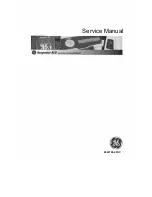
14
Optional Sensors
Temperature and Humidity Sensor
– Wall Mount
If a humidity or temperature/humidity sensor is called for in the specifications, follow the instructions in this
section.
A temperature and humidity sensor will need to
be installed in the desired location. It is important
to install the space humidity sensor in a single
gang junction box in an area that will provide
accurate temperature and humidity readings.
Avoid areas near windows that are exposed to
sunlight, areas near diffusers, areas near
appliances, areas more than 6 ft. above the floor,
etc. Any holes in the junction box should be
completely sealed with caulk to prevent humid air
from coming in contact with the sensors circuit
board.
shows an install detail for a wall-
mounted temperature and humidity sensor with a
plastic housing (PN: A/RH3-CP-R2).
shows an install detail for a wall-mounted
temperature and humidity sensor with stainless
steel housing (PN: A/RH3-CP-SP).
shows a wiring schematic of a space temperature
and humidity sensor that is installed in the space
and connected to the
“RTU” Input 1 on the
RTULink. Standard 18-5 thermostat wire should
be used for sensor wiring.
Figure 12. Temperature and Humidity Sensor Detail (Plastic Wall Mount)
Figure 13. Temperature and Humidity Sensor Detail (Stainless Steel Wall Mount Housing)
Summary of Contents for RTULink
Page 2: ...2...
Page 30: ...30 Main Board HMI Menu Tree...
Page 31: ...31...
Page 32: ...32...
Page 33: ...33...
Page 34: ...34...
Page 41: ...41...
Page 42: ...42...
Page 43: ...43...
Page 44: ...44...
Page 52: ...52 APPENDIX C Fixed Dry Bulb Economizer Figure 34 Fixed Dry Bulb Economizer Operation...
Page 53: ...53 Differential Dry Bulb Economizer Figure 35 Differential Dry Bulb Economizer Operation...
Page 54: ...54 Fixed Enthalpy Economizer Figure 36 Fixed Enthalpy Economizer Operation...
Page 55: ...55 Differential Enthalpy Economizer Figure 37 Differential Enthalpy Economizer Operation...















































